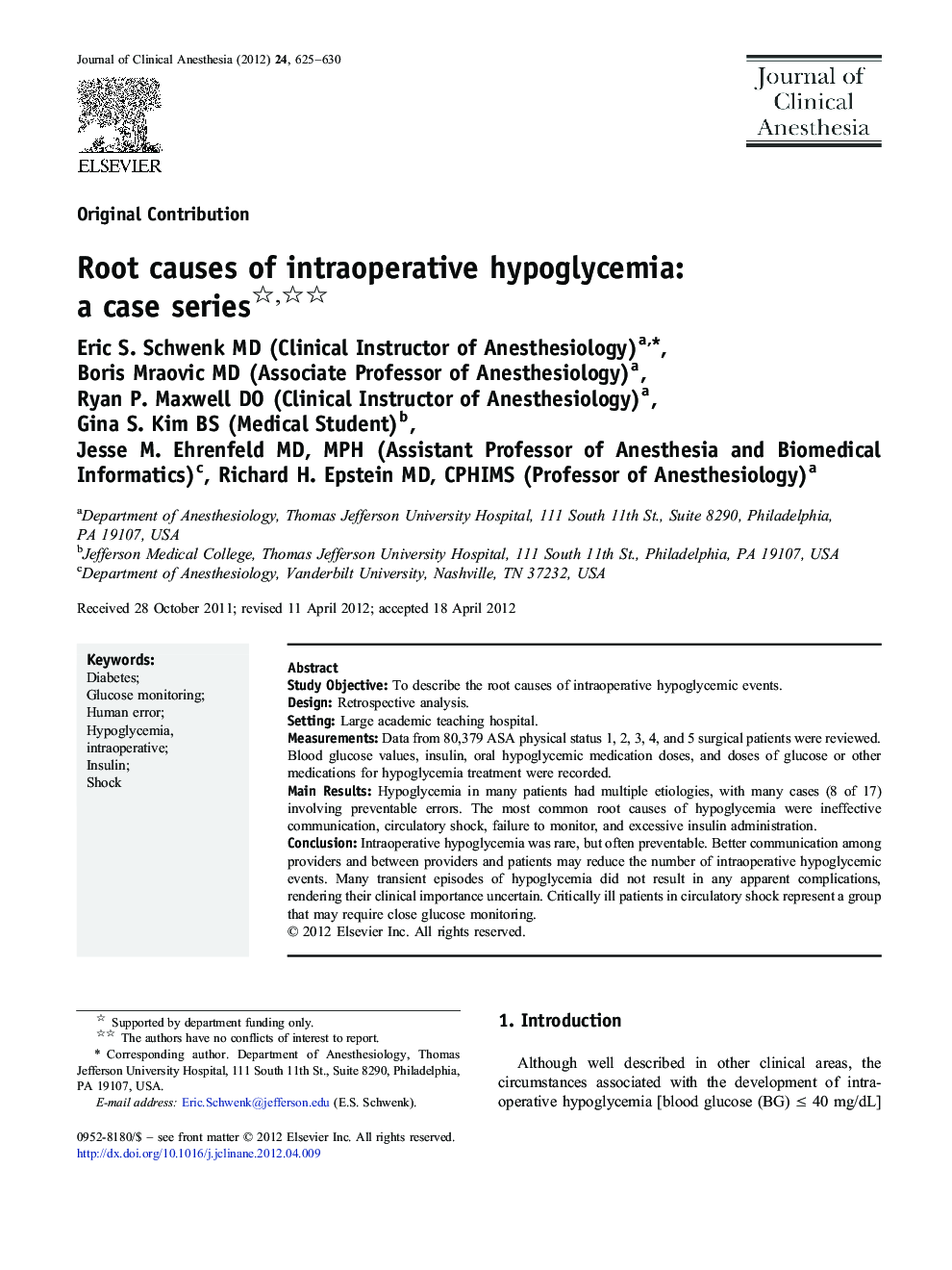| Article ID | Journal | Published Year | Pages | File Type |
|---|---|---|---|---|
| 2763092 | Journal of Clinical Anesthesia | 2012 | 6 Pages |
Study ObjectiveTo describe the root causes of intraoperative hypoglycemic events.DesignRetrospective analysis.SettingLarge academic teaching hospital.MeasurementsData from 80,379 ASA physical status 1, 2, 3, 4, and 5 surgical patients were reviewed. Blood glucose values, insulin, oral hypoglycemic medication doses, and doses of glucose or other medications for hypoglycemia treatment were recorded.Main ResultsHypoglycemia in many patients had multiple etiologies, with many cases (8 of 17) involving preventable errors. The most common root causes of hypoglycemia were ineffective communication, circulatory shock, failure to monitor, and excessive insulin administration.ConclusionIntraoperative hypoglycemia was rare, but often preventable. Better communication among providers and between providers and patients may reduce the number of intraoperative hypoglycemic events. Many transient episodes of hypoglycemia did not result in any apparent complications, rendering their clinical importance uncertain. Critically ill patients in circulatory shock represent a group that may require close glucose monitoring.
